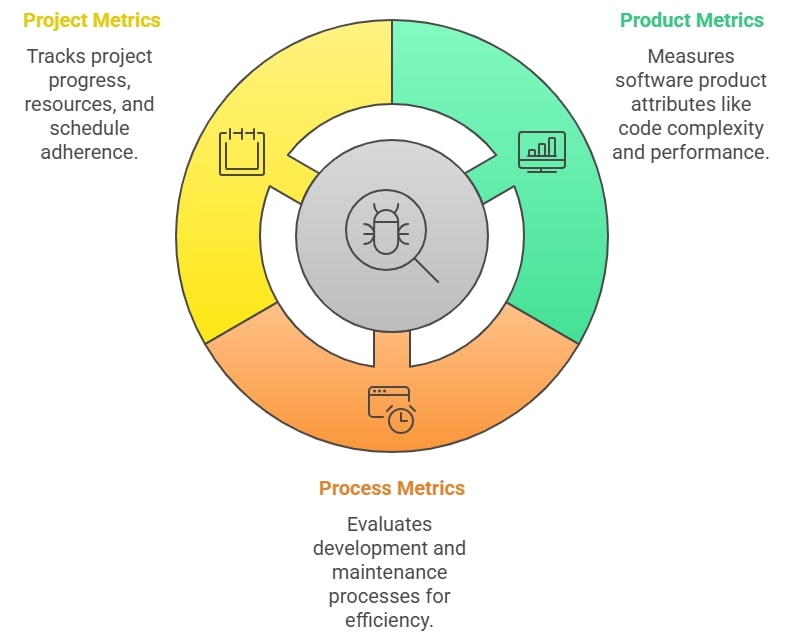How can AI improve the effectiveness of software quality metrics?
Status
answered
Status
answered
Quality assurance (QA) plays an important part in the software development process. Testing is considered to be the cornerstone of any software development project. With the rise of artificial intelligence (AI), the quality assurance process has become much easier. In this article, we will take a look at software quality metrics, the use of AI in metrics, and the benefits and challenges of doing so.

There are three types of software metrics.
Of these, software quality metrics focus more on product metrics. With the rise of AI, product metrics can be improved. Let’s look into how AI can improve the effectiveness of software quality metrics.
Software testing using artificial intelligence has become the newest trend in QA. Repetitive testing tasks can be automated using AI-driven solutions.
AI can improve the entire QA process, improving metrics related to test coverage, defect detection, and efficiency.
One of the main challenges in using software quality metrics is collecting and processing large amounts of data. While manual methods are time-consuming, AI tools can automate this process.
AI can identify business-critical areas and predict defects in the codebase using data such as code changes and metrics. The QA team would be able to proactively identify issues before they end up in production.
AI can be integrated into the CI/CD pipeline, and QA teams can analyze build artifacts and detect outliers early in the development process.
Even though there are many advantages when it comes to using AI in software quality metrics, there are disadvantages as well.
It is important to address these challenges when integrating AI into the QA process.
AI can vastly improve the effectiveness of software quality metrics. By automating test case generation, regression testing, data collection, providing predictive analysis, optimizing testing, and enabling continuous monitoring, AI enhances crucial software quality metrics like accuracy, relevance, and performance. Even though there are numerous benefits, there are challenges as well. While challenges remain, the benefits definitely outweigh the drawbacks, making AI an important tool for organizations.
